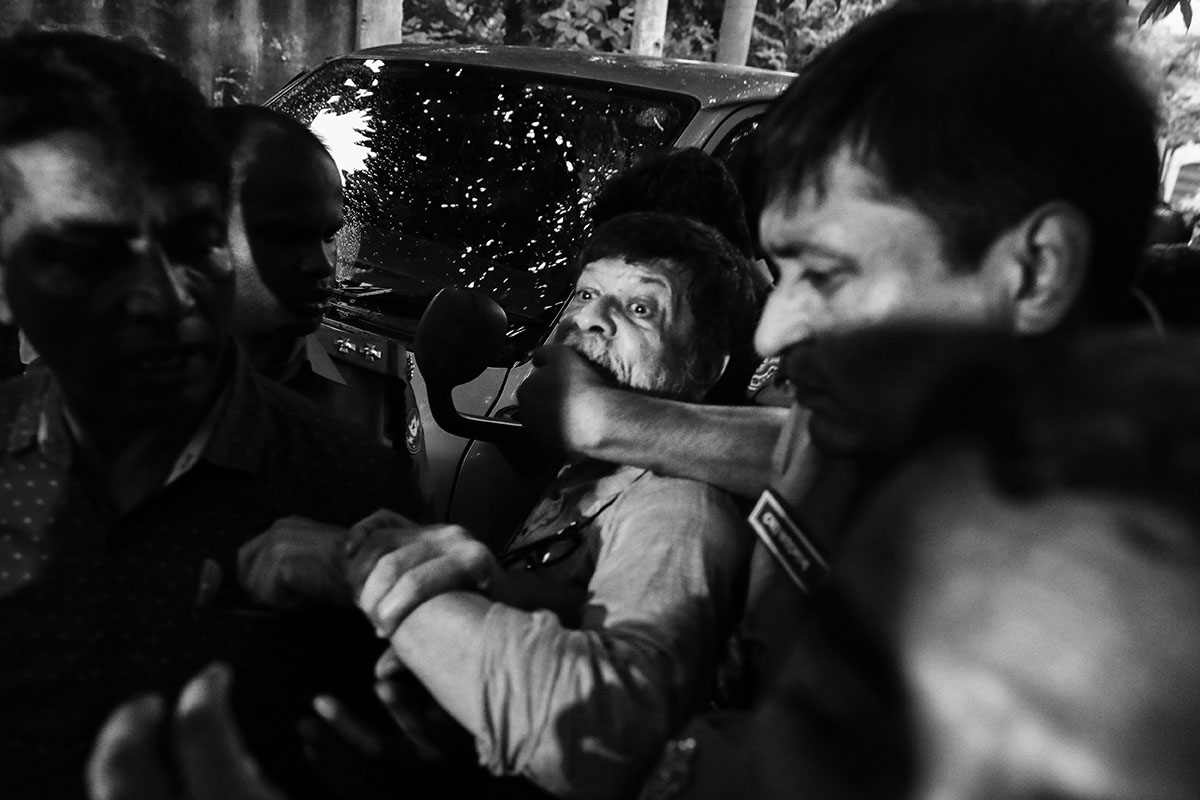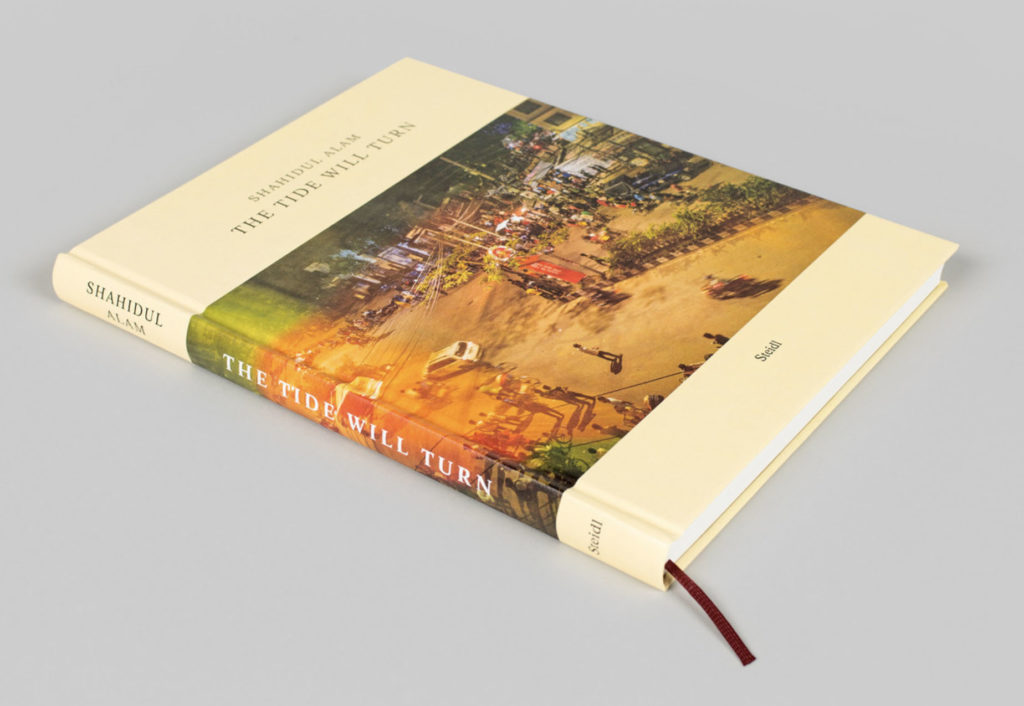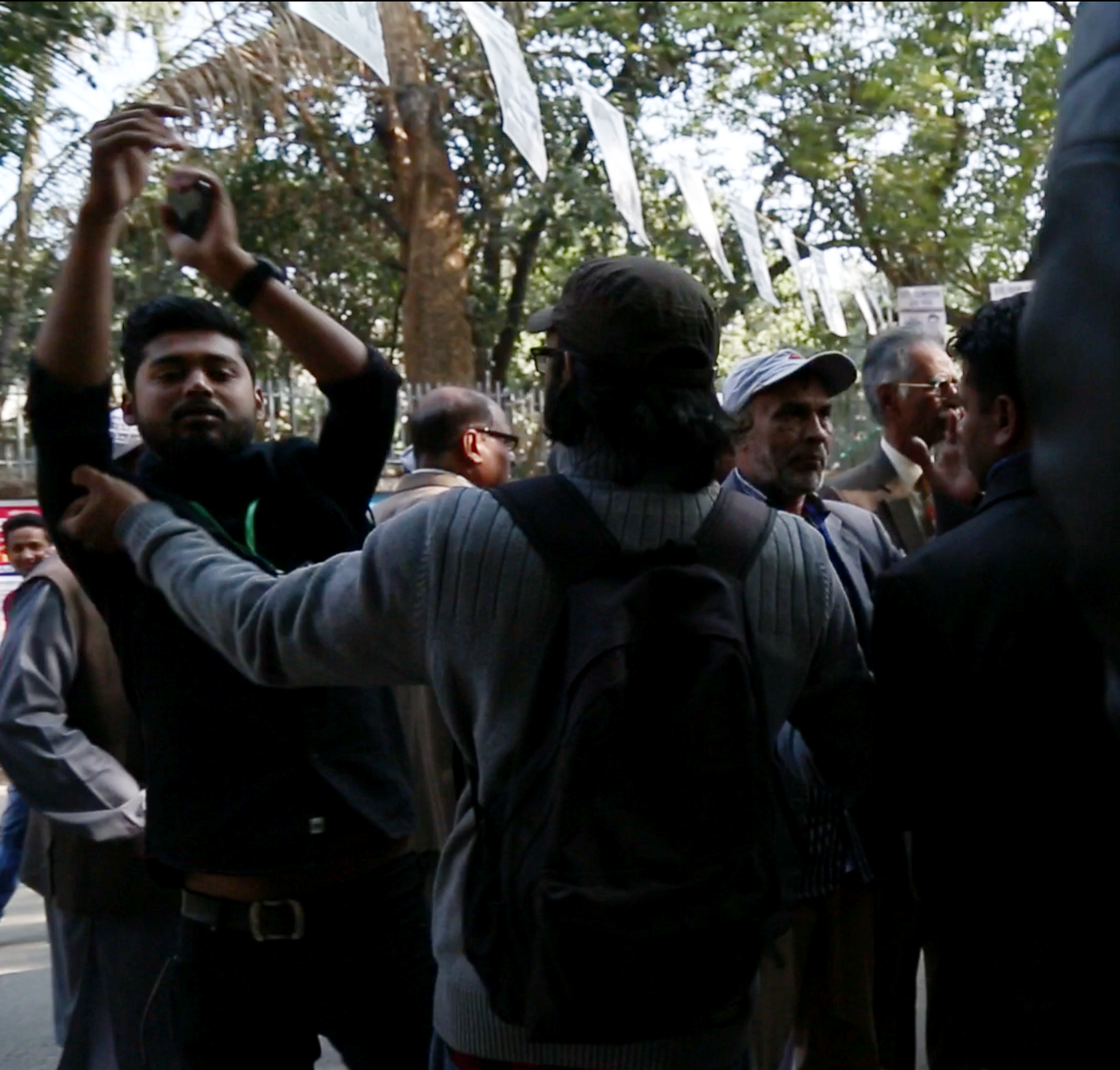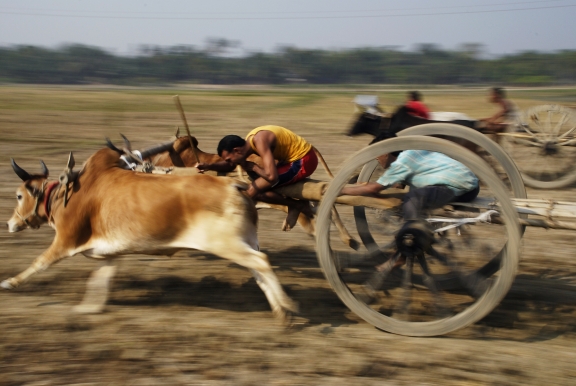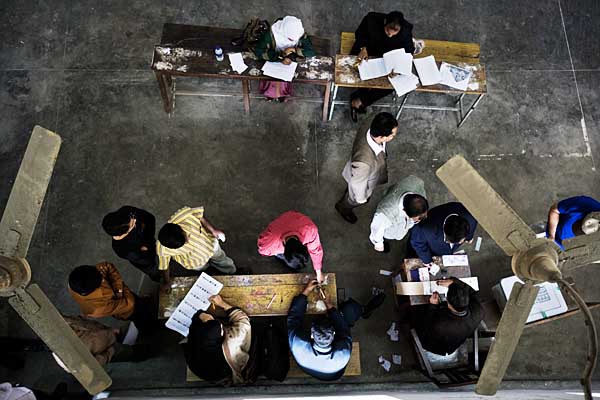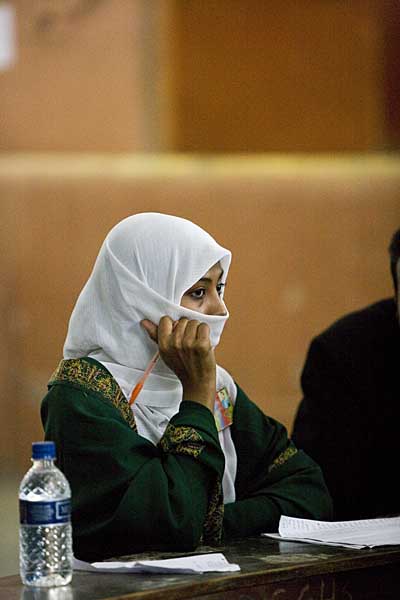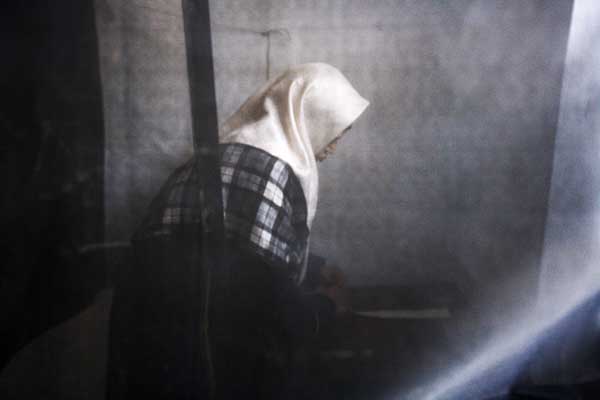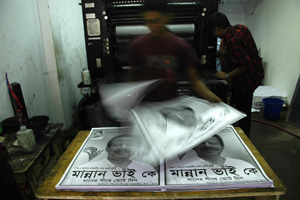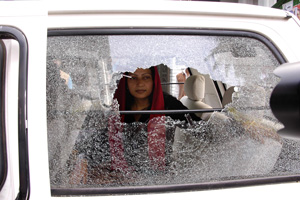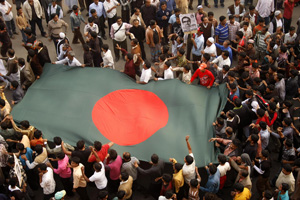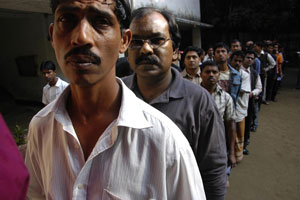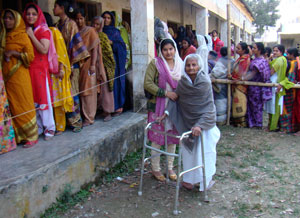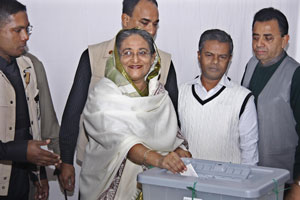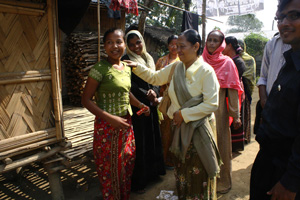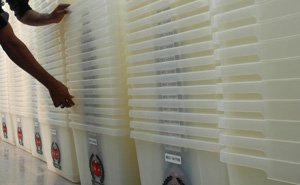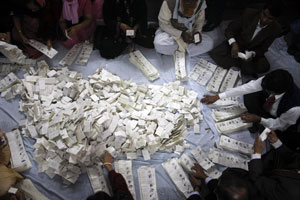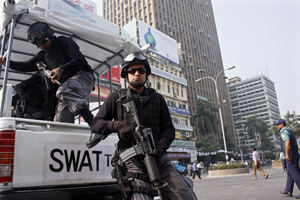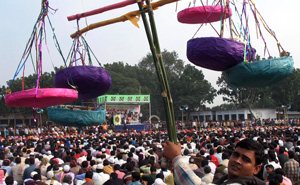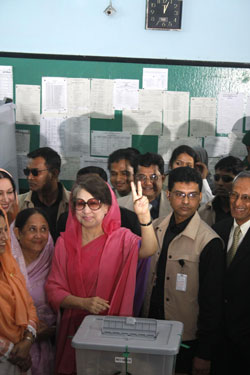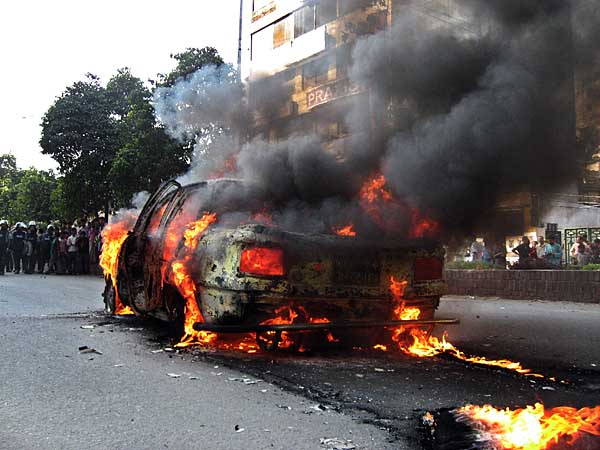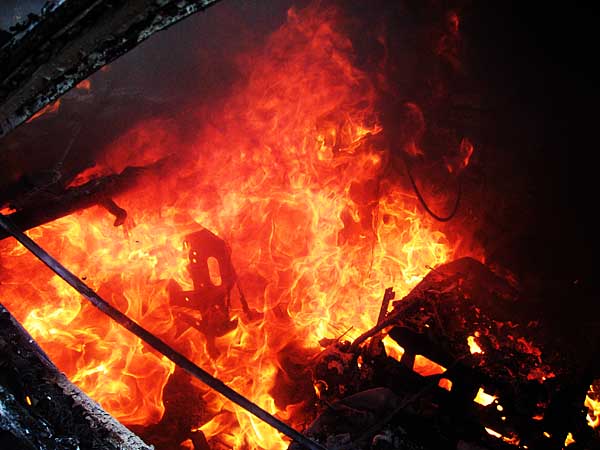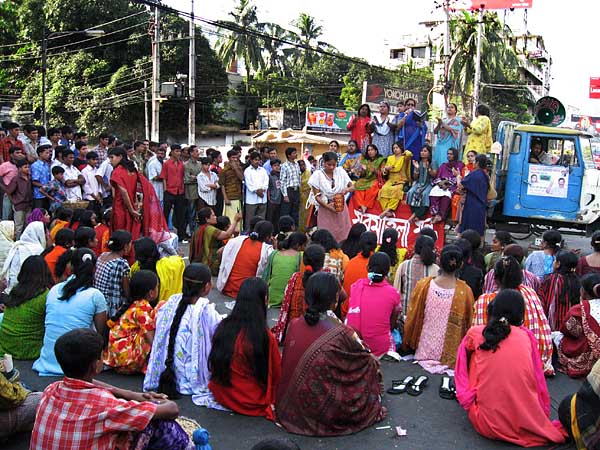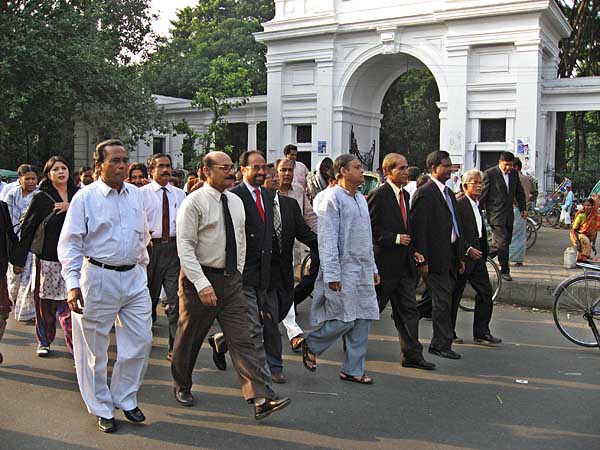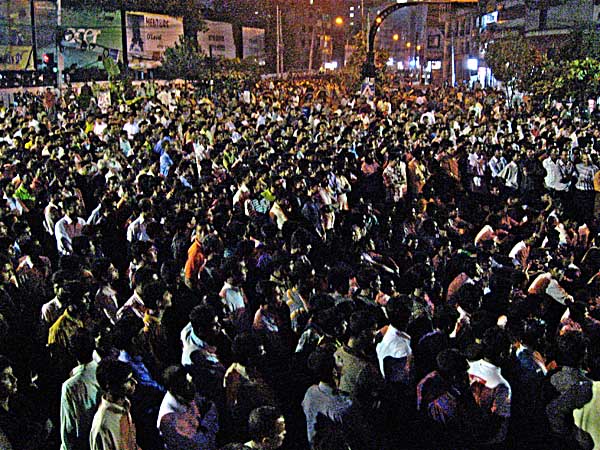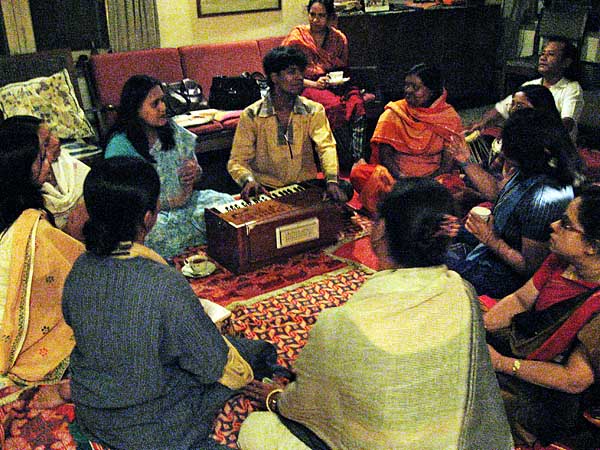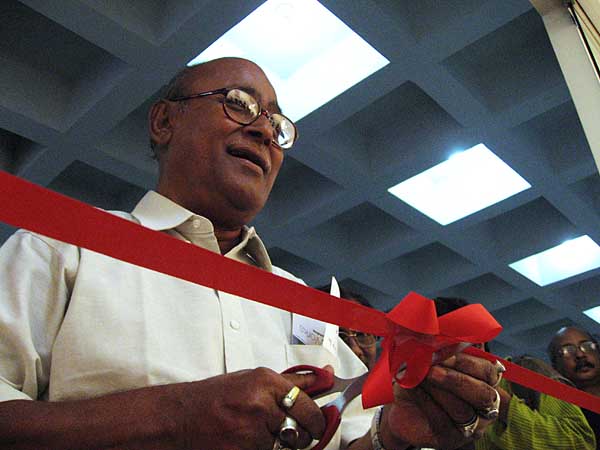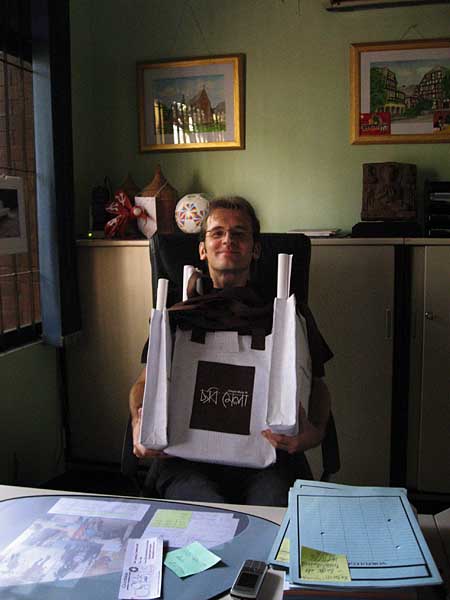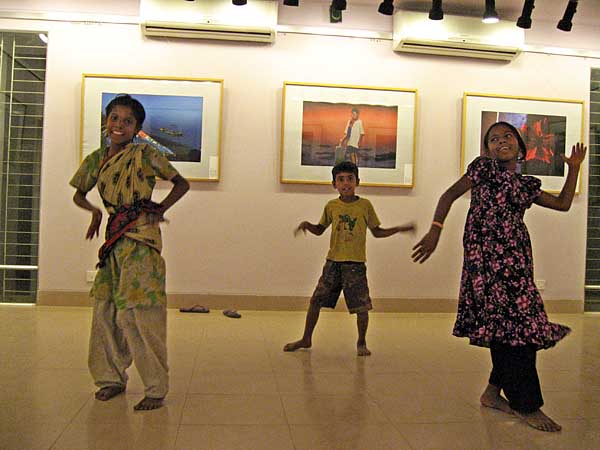
It was a dramatic ending to Robert Pledge?s presentation. Via Topu and Omi, I?d received the news that the military had been called out. Robert wanted to finish the presentation, but once I?d announced the government?s decision, the auditorium of the Goethe Institut quickly emptied out. This particular Chobi Mela IV presentation had come to an abrupt end. It was 1987 revisited.
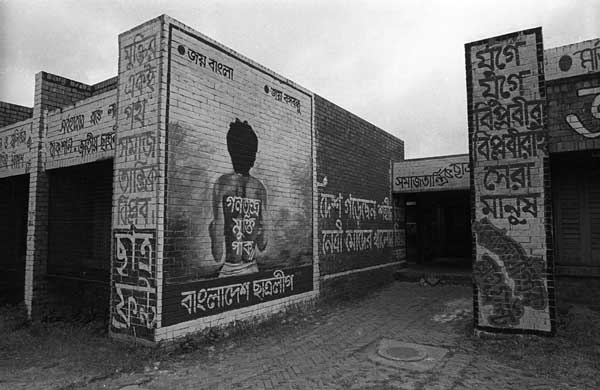
Noor Hossain had painted on his back ?Let Democracy be Freed? and the police had gunned him down on the 10th November 1987. But the people had taken to the streets and while we were scared the military would come out, there was no stopping us. It had taken three more years of street protests, before the general was forced to step down. The people had won. But then it had been a military general who was ruling the country. This was a civilian caretaker government. The general mistrust of a party in power, had resulted in this unique process in Bangladesh where an interim neutral caretaker government headed by a Chief Adviser (generally the most recently retired Chief Justice) and consisting of other neutral but respected members of the public were entrusted with conducting the elections. Why then the military? Yes, the president was a Bangladesh Nationalist Party (BNP, the largest party in the outgoing coalition government) appointee, there are ten advisors who are meant to be neutral.
A free and fair election hasn?t yielded the electoral democracy we had hoped for. After each term, the people have voted out the party in power, only to be rebuffed by a political system that has never had the interest of the people on their agenda. Still, the elections were held, and despite the fact that there had been one rigged election in 1996 (rejected and held again under a neutral caretaker government), an electoral process of democratisation, was slowly developing.
This time however, the total disregard for the electoral process has created a sham, and the three key people in this electoral process, the president, the chief adviser, and the chief election commissioner (CEC), are colluding against the people. The first two, being represented by the same person, was a BNP appointee. He also happens to be the head of the military. The CEC, now a cartoon character, had also been appointed by the BNP while it was in power. Coupled with a clearly flawed voters list, this has removed any hope of a free and fair election. Can the caretaker government genuinely conduct a fair election? I believe it still can, if given the chance, despite the president?s lack of credibility. But for that to happen, the military, the bureaucracy and the police need to remember that it is with the people that their allegiance lies.
However, it does depend upon the removal of the other obstacles. The election commissioner cannot constitutionally be removed, and his removal is central to the opposition demands. What then can we do? There is only one body higher than the constitution, the people themselves. The advisors need to be empowered if they are to pull off this election. Sandwiched between a partisan executive head and another partisan CEC, the advisers risk becoming irrelevant. The only way this can be checked is if people come out in droves. Not ?hired for the day? supporters but ordinary people committed to civilian rule, and a multi-party system.
It is we the people who need to take to the streets. And it is time we sent out the message to all political parties, that an entire nation cannot be appropriated. They need to be told that we did not liberate our country in vain, and despite the poverty and the hardship that we go through, we will not be cowed down, and will not blindly tow a party line, when the party itself has disengaged from the people. If tomorrow, every woman man and child takes to the street of Bangladesh, there is no power, not the military, not the president, not the advisers, not the CEC, not the BNP and not AL that can stop us.
There is hope yet. The advisers have had the good sense to reverse the home ministry?s unilateral decision to call out the army and the president and chief adviser has been challenged for taking such a step. Whether the advisers can continue to take such bold steps depends on our ability to bolster their nebulous position.
Blockades and hartals do hurt the economy, and ironically, it is the person in the street who is the most vulnerable. But faced with an attempt to take away the only chance she has to exercise her right to elect the government of her choice, she has little option left but to take to the streets. As the world is finding out, in Iraq, in Afghanistan, and wherever else there is conflict, a military victory is never a victory. If the anger of the people is to be quelled, then the underlying causes of discontent need to be solved. Flexing the muscles of the military, will only put a lid on the boiling pot, and the longer the lid is pressed down, the bigger will be the eventual explosion. More have died today, and with every death, the flashpoint looms closer.
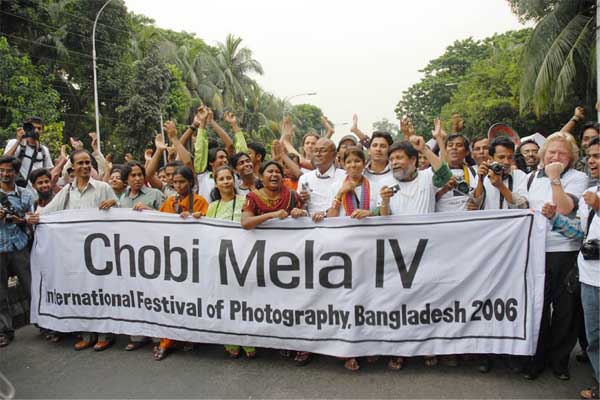
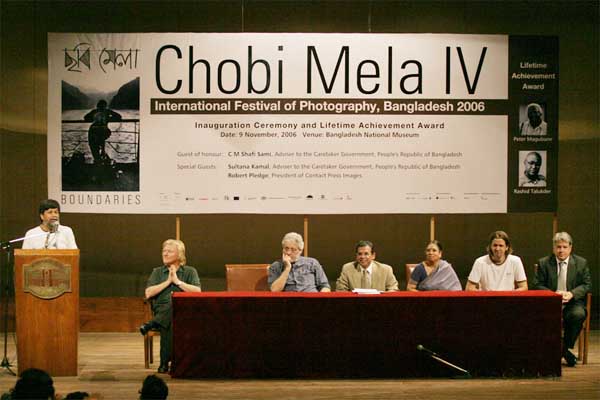
Chobi Mela IV has continued despite it all. The dancing in the all night boat party,
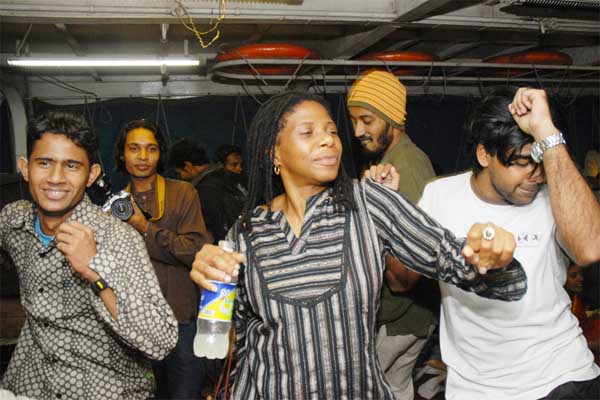
the heated arguments at every meeting point, the mobile exhibitions, all went on despite the turmoil. The presentations on the night of the 11th, with Yumi Goto, showing work by the children from Bandar Aceh, Neo Ntsoma showing her work on youth culture in South Africa, Chris Rainier showing his long term projects on ?Ancient Marks?, and the deeply personal, but very different accounts of Trent Parke
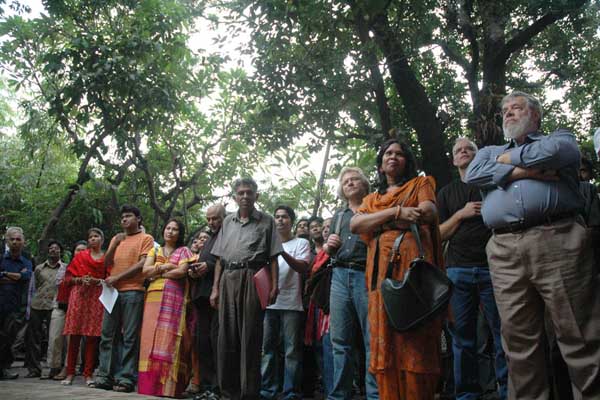
and Pablo Bartholomew, made one of the most intriguing evenings I can remember. The packed audience that had braved the blockade had perhaps an inkling of what was to come. Morten had a full house for his ?gallery walk? at the Alliance Francaise and Trent?s workshops were packed out. The grand opening was at the National Museum, where we had one fifth of the cabinet opening the show. Kollol gave a passionate rendering of his song ?Boundaries? written especially for the festival. The rickshaw vans designed to take the festival to the public, plied the streets of Old Dhaka, Mirpur and other areas not used to gallery crowds.
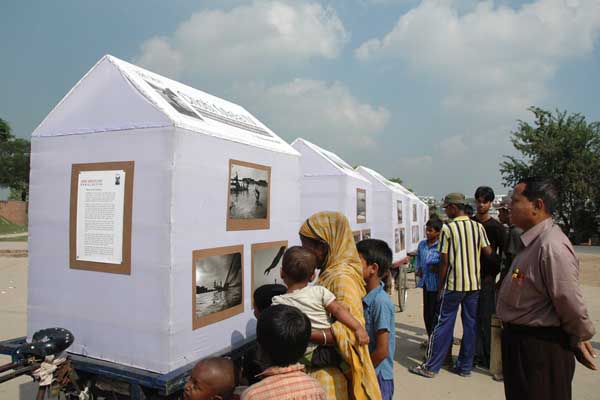
The chief guest, adviser C.M. Shafi Sami, the special guests adviser Sultana Kamal and Robert Pledge, photographers Morten Krogvold and Trent Parke and the scholarship recepient Dolly Akhter all spoke eloquently. Little did the audience know about the drama that had taken place the night before. With the museum functionaries doing their best to keep us from putting up the Contact Press Images show (http://www.chobimela.org/contact_press_images.php), we were under pressure, but working all through the night and sleeping on the museum floor, we managed to put the show up on time.
Last night, the empty streets, looked ominous as I dropped off Chulie, Robert and Yang, and people have been dying in the streets.
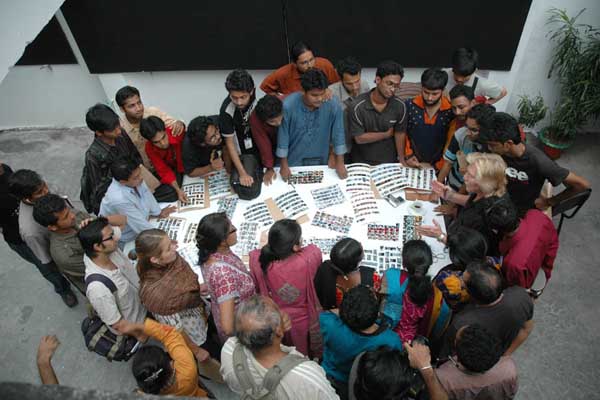
Since then we have had Morten Krogvold?s passionate presentation at the gallery walk at Alliance, Rupert Grey?s clinical dissection of the law and his dry British humour,
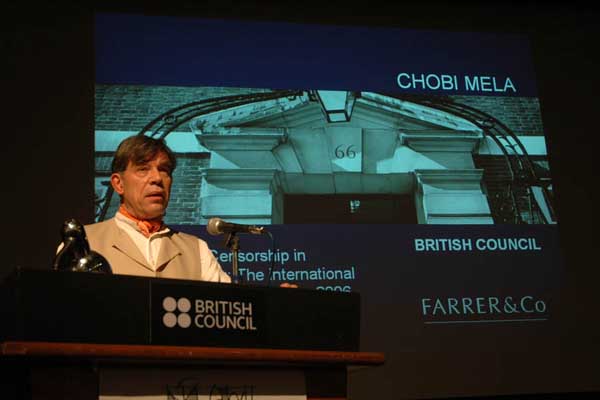
both at the British Council and the Goethe Institut, Saiful Huq Omi?s disturbing but powerful images of political violence, Cristobal Trejo?s poetic rendering of an unseen world, Richard Atrero De Guzman?s honest response to difficult questions about representation and my own presentation on natural disasters and their social impact have all been well attended, despite the tension in the desolate Dhaka streets. The evening presentations close tonight with an insightful film by Indian film maker Joshy Joseph, presentations by Norman Leslie and a behind the scenes look by the photographers at the Drik Photo Department, Md. Main Uddin, Shehab Uddin and Amin, Chandan Robert Rebeiro, Imtiaz Mahabub Mumit and Shumon of Pathshala and Mexican exhibitor Cristobal Trejo. The shows go on as they always do at Drik.
In 1991, a woman with her vote had avenged Noor Hossain’s death.
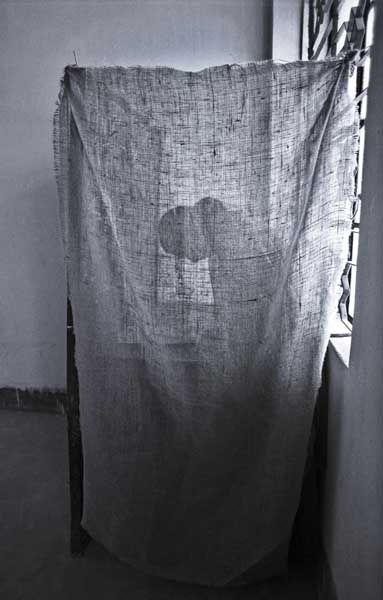
A fortnight ago, the city was in flames, and a stubborn chief election commissioner is stoking the flames again. It is a fire he and his allies will be powerless to stop.
Shahidul Alam
Dhaka
Chobi Mela site
Blog by Australian curator Bec Dean
Short video on Chobi Mela IV
